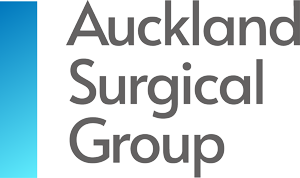Potential complications of surgery
Every surgery carries some level of risk, and weight loss surgery is no exception. Because this is surgery on the stomach and bowel, it’s considered major surgery. That said, bariatric surgery is very safe overall, especially when compared to many other types of surgery.
Although rare, serious complications can occur. In very uncommon cases, people have died following surgery for morbid obesity. The chance of this happening is very low, less than one in 1,000 patients, but we believe it’s important you are aware of it.
Certain health conditions, such as heart disease or poor circulation, as well as age and the severity of obesity, may slightly increase your level of risk. Events such as heart attacks, blood clots in the legs that travel to the lungs, or leakage at the surgical joins are all possible, but we take every precaution to reduce these risks, both during your operation and throughout your hospital stay.
Other complications that may occur include wound infections, pneumonia and ulcers or narrowing at the site where the stomach is joined to the small bowel.
Some of these are minor and resolve quickly, while others may extend your hospital stay or recovery period. To reduce these risks, we’ll provide antibiotics during surgery, deep breathing exercises for you to do, and encourage gentle movement and walking as soon as you’re able.
Our team at Auckland Weight Loss Surgery will guide and support you through each of these steps, and we’re here to help you feel confident and prepared.
Following gastric bypass surgery, your ability to absorb certain nutrients will change. To prevent deficiencies, you’ll need to take vitamin and mineral supplements, especially iron, calcium, and vitamin B12, for the long term. Sometimes, these may be given as injections, particularly during the first year while your body is adjusting.
We know this is a lot to take in. Most people who undergo Roux-en-Y gastric bypass do not experience serious complications, and many have only minor, short-term side effects.
We encourage you to talk openly with your surgeon and care team. We’re here to make sure you feel fully informed and supported, every step of the way.
Complications that can occur with gastric bypass surgery are listed below. This list is long, and although most patients have no complications, or minor complications only, please take note and ask your surgeon and team any questions that will help you to understand the risks associated with weight loss surgery.
During gastric bypass surgery
- A larger incision may need to be made because of technical difficulty with keyhole approach
- An injury to the bowel or other organs from insertion of keyhole instruments
- Bleeding from blood vessels or injured organs
- Technical difficulty leading to change in operation strategy
- Complications related to placement of intravenous and arterial lines. This includes bleeding, nerve injury, or pneumothorax (collapsed lung)
- Nerve or muscle injury, usually temporary, related to positioning during surgery
- Allergic reactions to medication, anaesthetic agents or prosthetic devices
After gastric bypass surgery
- Mortality rate less than 1 in 1000
- Leak from staple lines or joins. Rate between 1 to 2 in 100. May require further surgery or lead to sepsis
- Significant bleed. Rate around 1 in 300. May require transfusion or further surgery
- Infection at keyhole incisions, or deep within the abdomen. A serious infection is often called sepsis. This is uncommon but can lead to further surgery, a longer hospital stay organ failure or death
- Deep vein thrombosis (blood clot in the leg veins). These can occasionally travel to the lungs (pulmonary embolus). Rate around 1 in 100
- Pneumonia or other breathing problems. The worst of these is respiratory failure, which is the inability to breathe adequately after surgery, and may require support of breathing in an intensive care ward
- Heart attack or abnormal heart rhythm
- Stroke
- Pancreatitis
- Urinary tract infection or injury to the urinary tract from catheter insertion
- Colitis (inflammation of the colon), usually due to antibiotics used in surgery
- Constipation
Gastric bypass in the longer term
- Troublesome symptoms may include abdominal pain, change in bowel pattern, tiredness, bloating, nausea or vomiting
- ‘Dumping syndrome’. This is an unpleasant feeling after eating sugary foods. Usual symptoms are anxiety, tremor and sweatiness
- Narrowing or ulcers where the stomach and small bowel join. May require stretching with a balloon or, rarely, surgery
- Lack of adequate vitamin intake. Prevented by regular blood tests and supplementation of vitamins, especially B12
- Excessive or inadequate weight loss. Rarely requires further surgery
- Dehydration or imbalance of body salts, usually from inadequate fluid intake, infrequently requires admission to hospital
- Inflammation of the remaining stomach or oesophagus
- Gall bladder disease, usually from gallstones that form during rapid weight loss. Can require surgical removal of the gallbladder
- Hernias at the site of incisions
- Internal hernias. These can occur inside the abdomen because of rearrangement of the bowel or scarring from surgery. This may block the bowel, and is an ongoing risk that occurs in 1 per cent of patients per year and sometimes requires urgent surgery to correct
- Psychological problems can include depression, adjustment disorder, relationship difficulties, substance abuse and rarely suicide
- Liver disease or failure. Can occur if there is underlying liver damage that is worsened by weight loss or surgery
- Thinning of the bones (osteoporosis) can lead to fractures especially in women. Prevention requires lifelong dietary calcium supplements
- Hair loss from malnutrition. This usually resolves within a few months of surgery and is usually only noticeable to the patient
Inspire others by showing what’s possible.

